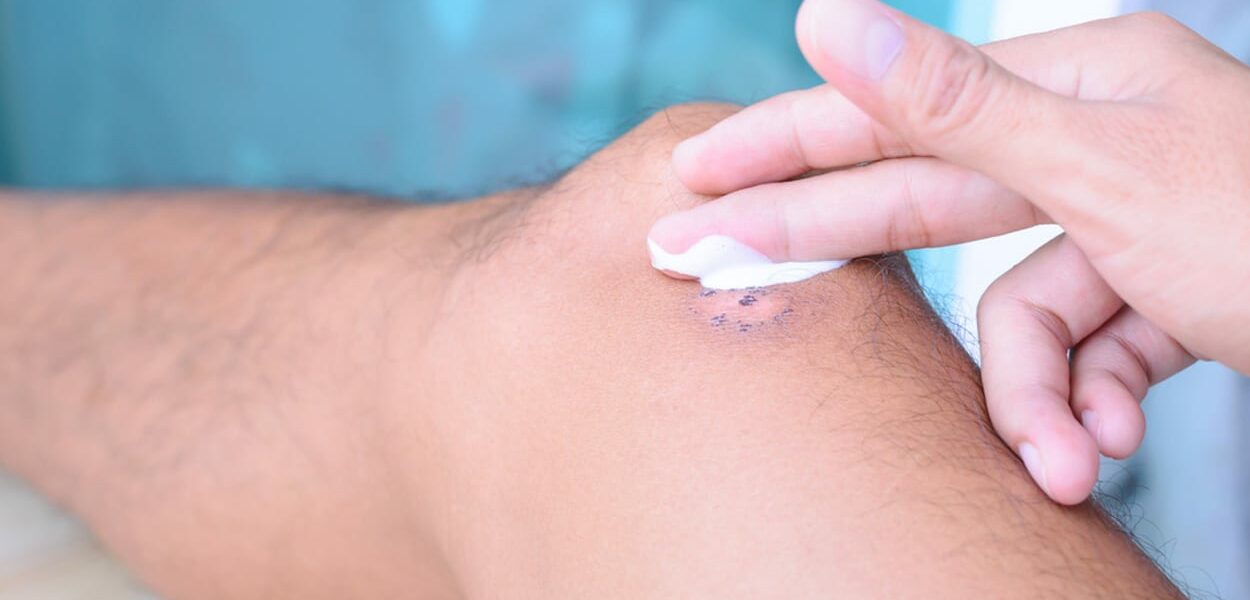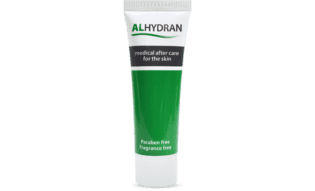Scar Cream: what does it need to achieve?
A good scar cream ensures that the moisture level in the skin is increased. In addition, a scar cream must retain moisture in the skin for a long time. This is why cosmetic or hydrating creams are not suitable for treating scars; even though they add moisture, they do not help retain it.
Scars: why do they happen?
Scars are common. Everyone either knows someone around them who has a scar, or they have one themselves. It is not predictable how likely it is that you will get a scar after, for example, an accident or an operation. But you can predict whether you are more likely to have problem scars. With deeper skin injuries you are more likely to get problem scars. So-called risk factors also play an important role in predicting problem scars. If only the upper layer of skin (epidermis) is damaged by, for example, a graze, then then the skin will heal without problems. An injury in the deeper skin (dermis) will lead to scars.
Scars: decreased skin function
Scars are the body’s solution for closing damaged skin as quickly as possible. Your body tries to close the skin as quickly and effectively as possible in order to prevent infection and excessive fluid loss. Unfortunately it is difficult for your body to fully restore skin if there is deeper damage to the skin (in the dermis).
To close skin as quickly as possible the body has come up with something: scars. One disadvantage of a scar is its structure; its quality is not as good as in healthy skin. Also scars lack important functions which are needed to operate well. A scar, for example, can not maintain a good moisture balance on its own.
Scars and moisture balance
Scars lose a lot of moisture; too much! Scars in which the moisture balance is not correct can lead to problems, such as:
- Production of extra scar tissue. In reaction to moisture loss the scar will make more scar tissue so that the barrier of the skin will become thicker and there will be less fluid loss. Unfortunately more scar tissue means more scar problems, such as less elastic skin, pulling of scars and stiffness of scars.
- Dry skin. Significant moisture loss through the scar leads to a dry skin. A dry skin leads to more scar problems, such as itchiness, pain and flaky skin.
What must the best scar cream achieve?
A good scar cream must restore a good, long-lasting moisture balance. It is important that a scar cream increases the moisture balance. Just like in healthy skin: not too much and also not too little moisture in the skin. In addition, a scar cream must ensure that moisture in the skin does not evaporate. Below are three criteria which a good scar cream must satisfy:
- Successfully restore the moisture balance
A scar cream must restore the moisture balance. A scar cream that does not fully restore the moisture balance will not heal scars. Scars and symptoms will increase if the scar keeps losing too much moisture. A scar cream that allows too much hydration or evaporation from the skin may make the skin vulnerable. This is because the skin has softened, or because the skin can not breathe as well. - Restore a long-lasting moisture balance
If a scar cream only does its work for a short time then the scar will soon lose a lot of moisture again. In order to protect your scars against moisture loss you want a scar cream to work for a long time. This way you prevent the scar expanding and the symptoms worsening. - A proven scar cream
In choosing a scar cream it is important to ask yourself if there is enough evidence that the product will heal your scars.
ALHYDRAN scar cream
As you can read above, a (scar) cream is not automatically a good scar cream! ALHYDRAN scar cream fulfils all of the criteria for properly restoring a long-lasting moisture balance in scars. And it is proven to be effective.



